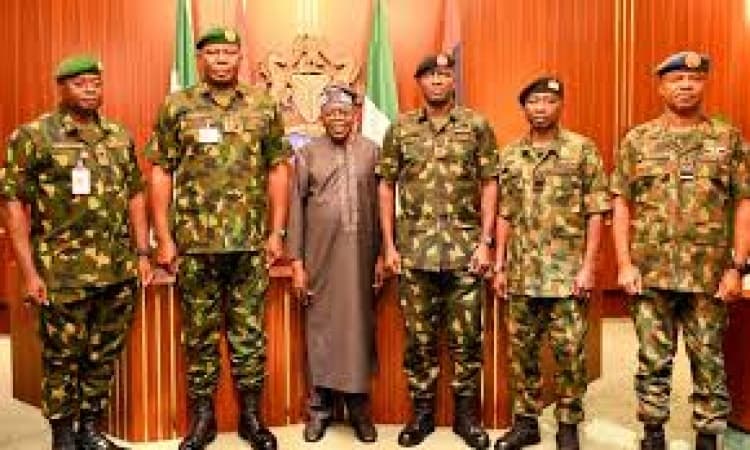
President Tinubu addressing the new service chiefs
By SUMAILA OGBAJE (NAN)
In his message to the newly appointed Service Chiefs, President Bola Tinubu emphasised professionalism, discipline, and the need for results-driven operations.
“The security and safety of every Nigerian is paramount; you have a duty to deliver measurable outcomes,” he said.
For many Nigerians, this call underscores the urgency of national security renewal; a call that now rests squarely on the shoulders of the new military chiefs.
The president’s decision to inject fresh energy into the military leadership has been widely commended as a step in the right direction — not only for its symbolism but also for its strategic implications.
The appointments, analysts say, reflect Tinubu’s understanding that modern warfare requires new thinking, adaptive leadership, and a deep commitment to inter-agency coordination.
At the apex of Nigeria’s military hierarchy is the Chief of Defence Staff (CDS), whose principal task is to ensure synergy among the Army, Navy, and Air Force.
The role of the CDS goes beyond coordination; it embodies strategic alignment, unified planning, and the creation of a seamless command structure capable of responding swiftly to emerging threats.
Observers say the new CDS, Lt.-Gen. Olufemi Oluyede, is expected to deepen joint operations and intelligence fusion, ensuring that rivalries or silos between the services are replaced with cooperation and shared objectives.
In the fight against terrorism and insurgency, real-time intelligence, tactical mobility, and the effective use of technology will determine the tempo and outcome of operations.
Security analysts also stress the need for the Defence Headquarters to enhance inter-agency cooperation — especially among the Armed Forces, Police, Department of State Services, and the Nigeria Security and Civil Defence Corps.
With improved communication, shared databases, and coordinated field missions, Nigeria’s fight against insurgency and banditry could achieve greater results with fewer resources.
The Nigerian Army, now to be led by Maj.-Gen. Waidi Shaibu, remains the largest and most visible component of the Armed Forces, with troops deployed in nearly every state of the federation for various internal security operations.
The new Chief of Army Staff (COAS) faces the enormous challenge of sustaining the momentum against terrorists, bandits, and violent extremists, while also addressing structural issues such as troop welfare, logistics, and civil-military relations.
In the North-East, Operation Hadin Kai continues to yield positive outcomes, with sustained pressure on Boko Haram and ISWAP remnants.
Yet, analysts say, the battle is far from over; pockets of resistance, asymmetric ambushes, and sleeper cells still threaten hard-won gains.
For Shaibu, the agenda is clear: consolidate the successes of Operation Hadin Kai, enhance the mobility and responsiveness of troops under Operations Whirl Stroke, Safe Haven, and Delta Safe, and maintain focus on intelligence-led operations.
Equally vital, according to security experts, is the issue of personnel welfare.
Soldiers in the field continue to make immense sacrifices, often in difficult terrain and under challenging conditions; ensuring that they are properly equipped, trained, and motivated remains a core part of military effectiveness.
The army’s continued engagement in civil-military projects, such as building schools, providing medical outreach, and supporting local communities, helps reinforce the bond between citizens and the Armed Forces.
The new army leadership is therefore expected to deepen these community-focused initiatives, recognising that the fight against insecurity is as much about hearts and minds as it is about firepower.
Coming to the Nigerian Navy, the nation’s maritime environment is both an asset and liability.
With more than 853 kilometres of coastline and an expansive Exclusive Economic Zone (EEZ), the country depends heavily on maritime routes for trade, energy supply, and revenue generation.
The new Chief of Naval Staff (CNS), Rear Adm. Idi Abbas, inherits an institution that has made significant progress in recent years, notably in reducing piracy, illegal bunkering, and crude oil theft through operations such as Dakatar Da Barawo and Water Guard.
However, the challenges remain formidable.
Illegal fishing, smuggling, and maritime crime continue to threaten economic stability and national security.
The Navy’s modernisation drive, including the acquisition of new offshore patrol vessels, drones, and surveillance systems, is expected to continue under the new leadership.
Equally important is regional cooperation.
The Gulf of Guinea remains one of the world’s most sensitive maritime corridors, and Nigeria’s leadership role within the Yaoundé Code of Conduct framework is crucial for sustained maritime security.
Analysts believe that the new CNS will need to strengthen intelligence sharing with regional navies and enhance Nigeria’s participation in multinational operations to safeguard its maritime interests.
The Nigerian Air Force (NAF), under its new Chief of Air Staff (CAS), AVM Sunday Aneke, is poised to expand its strategic role in both combat and humanitarian operations.
The NAF’s precision strikes have been instrumental in decimating terrorist enclaves, disrupting logistics corridors, and supporting ground troops in complex terrains.
The integration of drones, surveillance aircraft, and precision-guided munitions has transformed the Air Force into a key player in Nigeria’s asymmetric warfare landscape.
Going forward, experts suggest that the new CAS should focus on capacity building — investing in pilot training, aircraft maintenance, and indigenous technology production.
Strengthening local research partnerships, such as those with the Air Force Institute of Technology (AFIT) in Kaduna, could help Nigeria reduce dependency on foreign suppliers and enhance sustainability.
Moreover, the Air Force’s expanding humanitarian role, from medical evacuations to emergency relief, underscores its growing importance beyond combat.
The new leadership is expected to sustain this dual function, aligning with Nigeria’s broader national development agenda.
On the whole, beyond tactical operations, the new service chiefs face the challenge of redefining Nigeria’s defence strategy to meet contemporary realities.
In his view, a former Director of Peacekeeping Operations with the Nigerian Army and Commander of Operation Safe Haven, retired Maj.-Gen. Anthony Atolagbe, said that the change would generate excitement within the military.
Atolagbe had, during a television programme, opined that there would be some excitement in the Armed Forces because of the new redeployment.
According to him, it is going to make the military align properly with its procedures, or the necessary steps that need to be taken in the career progression of officers.
Also, military scholar, Dr Sani Abubakar, said the newly appointed service chiefs face a monumental challenge, adding that there were high expectations from the general populace and the military community.
Abubakar said the government’s foremost duty of ensuring the safety of all citizens must be actualised through positive actions from the new military leadership.
According to him, the North-East and North-West regions remain conflict zones and have recently witnessed a troubling increase in Boko Haram attacks targeting both civilians and military installations.
“Mafa, the hometown of the Borno Governor, has been under constant attacks.
“Similarly, places like Ngamdu, Dikwa, Gajibo, and Ngala were also affected.
“Niger and some parts of Kwara and Plateau are also red zones; armed opposition groups are having a good time in those places; this significant challenge lies ahead for the new service chiefs.
“The time has passed for merely announcing that they have thwarted or ‘repelled’ attacks; now, they must be recognised for their strategic planning and offensive operations against all armed groups that threaten the state’s authority and its legitimate claim to exercise the monopoly of violence.”
Abubakar said that Nigerians craved for genuine security and freedom from fear and threats that loomed over them on roads, in agricultural fields, schools, and even within their own homes.
According to him, it is insufficient to focus solely on regime security; the service chiefs should aim for comprehensive national and human security.
“Additionally, soldiers have their own set of expectations; it is crucial to ensure they are adequately equipped with night vision devices, military-grade drones, automatic rifles, sufficient ammunition, helicopters, MRAPs, and improvements to their welfare.
“Ultimately, it is essential for the new service chiefs to lead with integrity and effective governance as outlined by the Geneva Centre for Security Sector Governance and Reform,” he said.
The mood across the country reflects cautious optimism.
From local communities in the North-East to the Niger-Delta, citizens expect not only improved security but also a visible difference in military conduct and engagement.
The task before them is enormous: to defend a nation of more than 200 million people, restore peace in troubled regions, and project Nigeria as a force for stability in West Africa.
Observers say history will judge this team not by their appointments but by their achievements, by how they translate strategy into security, policy into peace, and command into confidence.
For the men and women of the Nigerian Armed Forces, the message is clear: a new chapter has begun, and with it, a renewed sense of mission. (NAN)

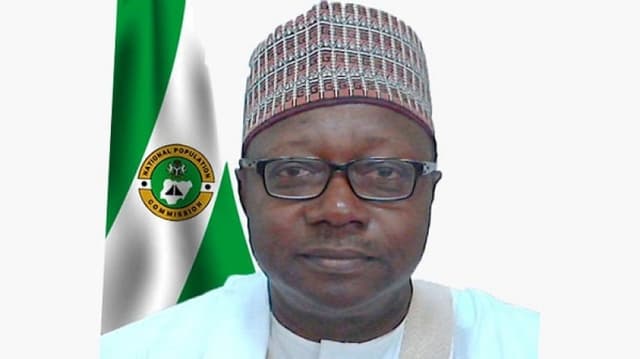



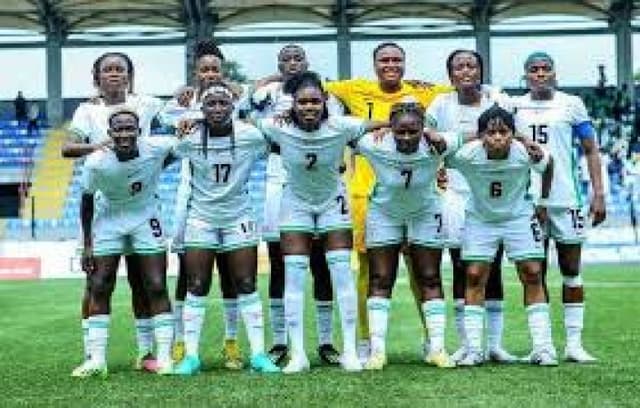
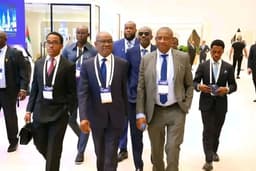
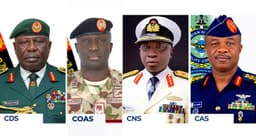





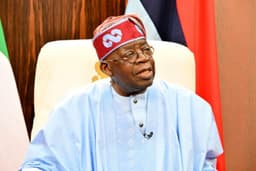

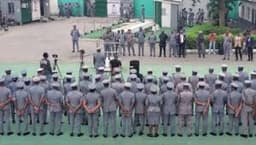

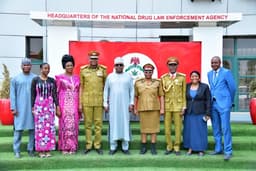
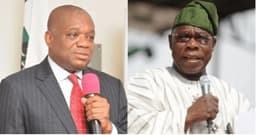
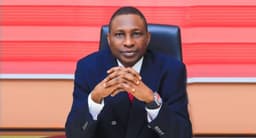
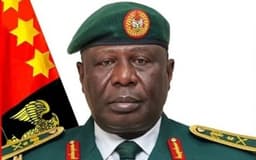

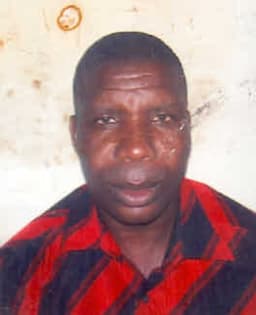

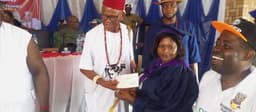
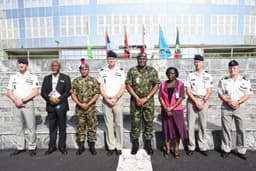

NEWS EXPRESS is Nigeria’s leading online newspaper. Published by Africa’s international award-winning journalist, Mr. Isaac Umunna, NEWS EXPRESS is Nigeria’s first truly professional online daily newspaper. It is published from Lagos, Nigeria’s economic and media hub, and has a provision for occasional special print editions. Thanks to our vast network of sources and dedicated team of professional journalists and contributors spread across Nigeria and overseas, NEWS EXPRESS has become synonymous with newsbreaks and exclusive stories from around the world.